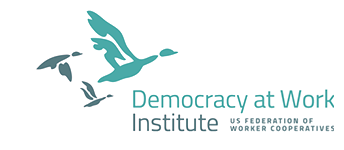
Who Should Attend
Managers and business owners seeking to help grow their business and successfully implement innovative workplace practices that engage and motivate employees to achieve strategic objectives through enhanced productivity, innovation, and improved customer satisfaction necessary to ensure financial success.
What Successful Companies Do
Successful companies need to be agile, and successful managers know that the more employees are engaged, the faster they can respond and pivot to meet changing conditions. More and more companies are seeking to create a participatory work environment and an organizational culture where managers willingly share information, encourage employees to think and act like owners, empower employees to be more accountable, and involve employees in decision-making. Yet most managers are not sure how to do this.
Program Benefits
Upon completion of this certificate program, business owners and managers will understand and use:
- Open book management tools and techniques to communicate critical financial metrics and engage employees in tracking them, including how and when to include employees in critical business decisions;
- Strategic thinking and decision-making tools and techniques that invite broad participation and account for multiple stakeholders; and
- High-performance human resource tools and techniques to enhance employee engagement, improve performance, develop effective communication skills, and promote leadership development.
Program Structure
This comprehensive certificate program delivers practical and experiential training over five days encompassing 10 three-hour modules, 30 hours of learning including:
Defines a participatory workplace and focuses on how to build trust, the foundation of participation.
Understanding learning styles and techniques for enhancing employees' performance.
Learn best practices of employee accountability with a focus on coaching as the basis for performance improvement.
Develop effective communication, negotiation, and conflict resolution strategies to improve work and business relations.
Covers the basics of decision-making, different types of decisions, and structures for making them.
Focuses on the unique structure and function of a Board of Directors and manager’s relationship to it.
Introduces Open-Book Management concept and the 5 steps of Open Book Management with practicing tools.
Focuses on financial communication skills and techniques, and capacity-building across the business.
Understanding strategic planning and how to grow the business in context of multiple stakeholders.
Understanding the importance of how to synthesize all course content to create a culture that motivates and engages employees to achieve strategic and business objectives.
The course is delivered by the NJ/NY Center for Employee Ownership at Rutgers School of Management and Labor Relations in partnership with Democracy at Work Institute, the national think- and do-tank dedicated to worker cooperative development.


Program Dates and Location
TBD
Cost
$2,500
Inquire here for scholarships and discount opportunities
Questions? Contact
Bethany Dennis
848-445-6279
HRCI and SHRM Credits Expected


